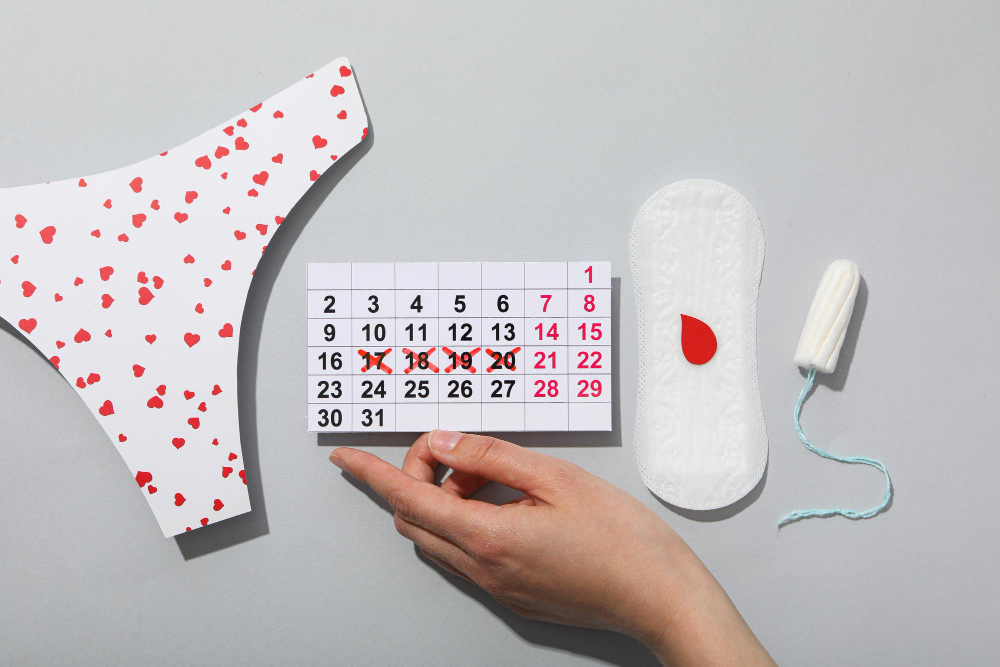Hormonal birth control has helped a majority of women take control of their fertility and sexuality. So many of us have used it for years successfully and consider it a game-changer. But what doesn’t get talked about nearly enough are the hormonal contraception side effects for women’s bodies.

Hormonal birth control, a widely-used method of preventing pregnancy, offers convenience and reliability to millions of women worldwide.
Hormonal birth control methods, including pills, patches, injections, and implants, work by altering hormone levels in the body, primarily by suppressing ovulation.
However, beyond its primary purpose, hormonal contraception can have various effects on the body that are not always well understood or discussed. We’re here to open up that discussion.
The role of hormonal birth control has shifted.
Most of us think of birth control as a way to prevent an unwanted pregnancy, but it happens to “solve” a lot of other issues. It’s not uncommon for doctors to prescribe birth control for other concerns, such as:
- PMS symptoms
- Hormonal acne.
- Heavy periods
- Irregular menstrual cycles
And guess what? It does work. But these are simply band-aid solutions. Hormonal birth control does not cure any of the above symptoms. It masks them on the interim instead of truly addressing them as a short term “fix”.
We need to talk more about hormonal birth control side effects and how they impact women’s bodies. It is 100% OK for a woman to choose to take birth control for whatever reason she decides is right for her, but when she makes that decision she should be fully informed, and that is where modern medicine sometimes fails her.
The effects of hormonal birth control are not negligible.
We’ll preface this by saying that there’s no reason to be concerned if you are taking or have taken birth control, because we’ve got plenty of good news for you down below!
Here are some of the ways birth control may affect your body:
- Disrupts your gut health
- Increases the risk of breast, endometrial, liver, and cervical cancer
- Decreases thyroid levels
- Thins the uterine lining
- Increases the risk of stroke, blood clots, and heart attack
- Strips your body of nutrients essential not only to your health, but also to getting and staying pregnant
- Lowers testosterone levels
- Can delay your fertility
OK, enough of the bad news.
The good news?
There’s so much you can do to get your body in balance after birth control. For those who haven’t taken hormonal birth control and who are experiencing some of the typical symptoms that a doctor might consider prescribing birth control for, these tips are for you, too.
- Take Balance. Your liver and kidneys are the MVP’s of detox, but our Cleanse helps speed up the process naturally. It’s helped so many women regulate their cycles and get their hormones back in balance. It’s also a favorite among women dealing with PCOS.
- Exercise. 30 minutes a day of moderate exercise can be life-changing for your health.
- Rest. Sleep is so important, but even beyond sleep, find ways to listen to your body’s natural cues to rest. This can be lying down and closing your eyes or meditating.
- Eat a healthy diet. You may have food sensitivities that are manifesting in the symptoms you’re experiencing (gluten, dairy, soy, etc.). You might want to test out eliminating these and see if you feel a difference. Either way, more veggies can’t hurt!
- Stay hydrated. Our bodies need lots of water to get rid of toxins. Aim for 8 or more 8-oz glasses a day.
- Take a prenatal vitamin. Remember how we said birth control can cause nutrient depletion? Taking a prenatal vitamin is essential if you are planning on trying to conceive in the near future. In fact, you need prenatals before pregnancy, at least 90 days before trying to conceive.
Hormonal birth control can have various effects on the body beyond its primary contraceptive function. While many women experience no significant issues and benefit from the convenience and reliability of these methods, others may encounter changes in menstrual patterns, mood, sexual health, or long-term health outcomes.
In addition to discussing the effects of hormonal birth control on the body, it’s important to consider other factors that may impact contraceptive choice and overall health. This includes lifestyle factors, such as smoking and diet, which can interact with hormonal contraception and affect its efficacy and safety. Moreover, individuals should be aware of alternative contraceptive options, including non-hormonal methods such as barrier methods, copper intrauterine devices (IUDs), and fertility awareness methods.
Remember, informed decision-making and proactive communication with healthcare providers are key to maintaining optimal reproductive health and well-being.
